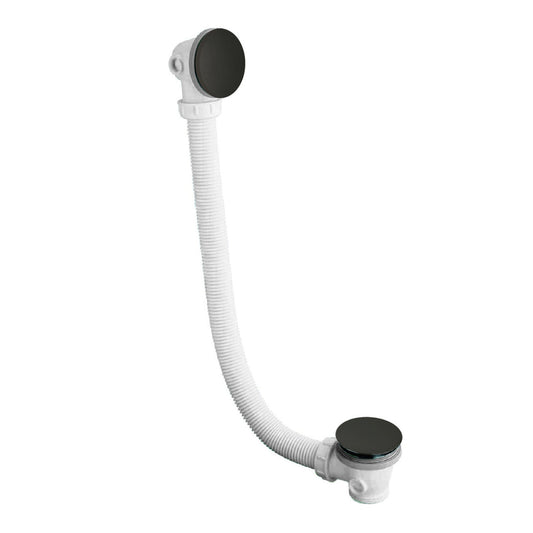Common Causes of Blocked Plug Holes and How to Solve Them
Table of Contents:
-
Introduction
-
Why Do Plug Holes Get Blocked?
-
Preventing Blocked Plug Holes
-
How to Unclog a Blocked Sink
-
How to Prevent Future Blockages
-
Conclusion
Introduction
Blocked plug holes can be a nuisance, but they are a common household issue that can be easily resolved.
In this article, we will explore the common causes of blocked plug holes and provide you with practical solutions to tackle these problems.
Whether it's in the kitchen or bathroom, understanding why plug holes get blocked and how to prevent and solve these blockages is essential for maintaining a smoothly running household.
Why Do Plug Holes Get Blocked?
Blocked plug holes can occur in both kitchen and bathroom sinks, and the causes may vary. Here are the primary reasons why plug holes get blocked:
-
Kitchen Sink Blockages:
- Cooking Fats and Oils: Pouring cooking fats and oils down the sink can lead to blockages over time. These substances solidify in the pipes and trap other debris.
- Food Waste: Avoid putting food scraps, coffee grounds, or any kind of food waste down the sink. These can accumulate and contribute to blockages.
-
Bathroom Sink Blockages:
- Hair: Hair is a common culprit in bathroom sink blockages. It combines with soap and toothpaste residue to form clogs.
- Toothpaste: The frequent use of toothpaste in bathroom sinks can result in blockages when it dries inside the pipes.
- Soap Scum: Liquid soap, in particular, can create blockages when it combines with hair and toothpaste.
Preventing Blocked Plug Holes
Prevention is the key to avoiding the hassle of dealing with blocked plug holes. Here are some preventive measures you can take:
In the Kitchen:
- Dispose of Cooking Fats and Oils Properly: Instead of pouring them down the sink, collect used fats and oils in a container and dispose of them in the trash.
- Clean Greasy Plates: Use paper towels to wipe greasy plates before washing them. Excess grease down the drain can lead to blockages.
- Soda Crystal Treatment: To maintain free-flowing drains, periodically pour a cup of soda crystals followed by boiling water down the plughole. This helps clear grease and banish odors.
In the Bathroom:
- Hair Removal: Remove visible hair from plug holes and shower grills regularly to prevent it from being flushed away and causing blockages.
- Use Enzyme Cleaning Sticks: Consider using enzyme cleaning sticks to break down grease and prevent unpleasant odors in your drains.

How to Unclog a Blocked Sink
When a sink is already blocked, you'll want to resolve the issue promptly. Here are steps to unclog a blocked sink:
-
Drain it: Start by emptying any surplus water from the sink using a jug or sponge.
-
Plunge it: Use a rubber plunger or drain auger to dislodge the blockage. Plug the overflow opening, coat the plunger's rim with petroleum jelly, and create a seal over the plughole. Pump vigorously and release. If needed, use an auger for stubborn blockages.
-
Take it Apart: Some sinks have a removable bottle trap as part of the U-bend. Remove it and clean it thoroughly to ensure the blockage is removed.

How to Prevent Future Blockages
Preventing future blockages is equally important. Here's how to maintain clear plug holes:
- Protective Drain Screen: Use a protective drain screen to catch hair and debris before they enter the plug hole. Clean it regularly.
- Hair Maintenance: Be mindful of hair disposal in the basin. Avoid brushing hair directly over the plug hole.
- Proactive Cleaning: Use a homemade cleaning solution of bicarbonate soda and white vinegar to keep the pipes clear. Flush it with boiling water regularly.
Conclusion
Blocked plug holes can disrupt your daily routines, but with the right knowledge and preventive measures, you can keep your sinks running smoothly.
Understanding the causes of blockages and how to address them is essential for a hassle-free home. By following these tips, you can enjoy clear plug holes and a trouble-free plumbing system.


















![Slimline Exofil with Pop-up Waste, Extended 105cm, LP 0.2 [809A7EX] Slimline Exofil with Pop-up Waste, Extended 105cm, LP 0.2](http://tapron.co.uk/cdn/shop/products/Slimline_Exofil_with_Pop-up_Waste_Extended_105cm_LP_0.2_533x.jpg?v=1551155506)












